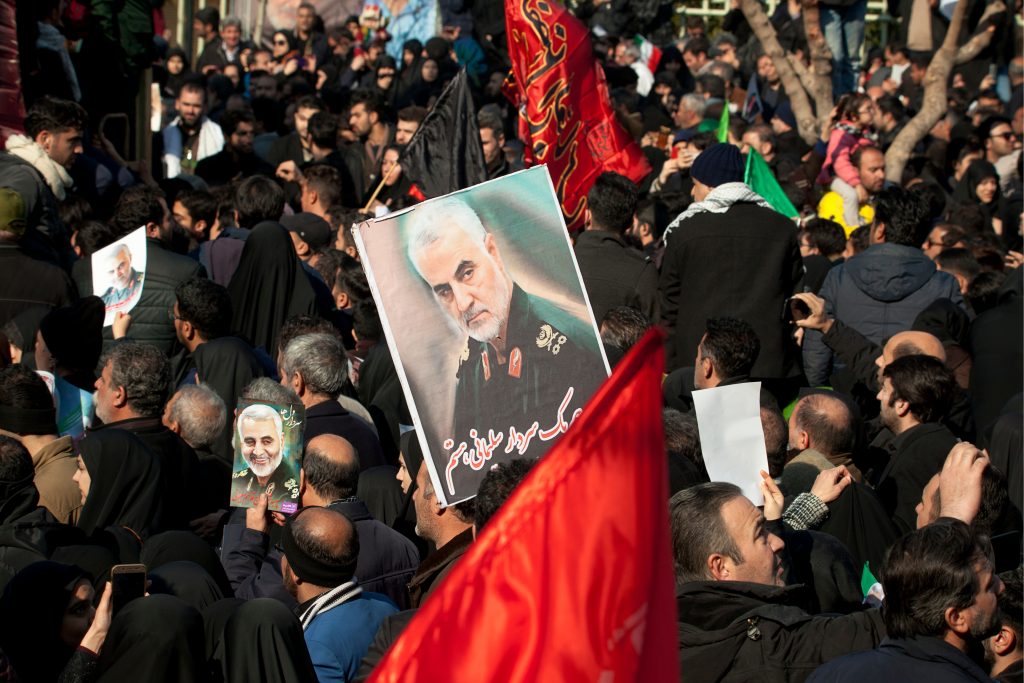Since the beginning of 2020, the news cycle has been dominated by constant attention-grabbing headlines which put last week’s news far from the mind. However, during the first couple months of 2020, there were two unprecedented and highly significant events for Israel and the region—events which, for better or worse, have had surprisingly little coverage in the media or had coverage that greatly misinterpreted their impact and significance. This article will take a look at the first significant event which happened in 2020.
THE US ASSASSINATES IRANIAN MILITARY CHIEF AND CHECKMATES IRAN

On January 3, 2020, US President Donald Trump authorized the targeted assassination of Major General Qassem Suleimani, the leader of Iran’s elite Quds Force and mastermind of Iran’s military operations outside Iran. With Suleimani at the helm, Iran’s military tentacles have been sewing terror and chaos across the Middle East, all the way from Syria, Lebanon and Gaza to Yemen. The US State Department said that it killed the Iranian general because he was actively planning attacks against US troops in Iraq and the region, but the significance of his removal goes far beyond American interests. It is hard to overstate the importance of Suleimani in Iran (the only more powerful man in Iran was the Supreme Leader, the Ayatollah himself), and the huge blow to Iran’s ability to carry out its proxy militia strategy across the Middle East—supporting the Houthis in Yemen, Hezbollah in Lebanon, Hamas in the Gaza Strip, and propping up the Assad regime in Syria, all which bear the hallmarks of Iranian involvement: chaos, violence, radicalization and active aggression against Israel.
Internationally Trump’s action called a “reckless act of war”
As soon as the news of Suleimani’s assassination broke, the international media exploded in one accord, calling Trump’s move tantamount to an act of war and a dangerous escalation of tensions between the US and Iran. As the world watched the funeral procession of Suleimani in Baghdad where mourners draped his grave in the red flag—a call for revenge of the “martyr’s” death—and listened to top Iranian leaders vow harsh retaliation, pundits and politicians around the world began warning that the Iranians would hit back hard, leading to more violence and destabilization.

The Israeli pundits were saying something else
Across the board, from left to right, experts and government officials in Israel called Trump’s move a brave decision—a deterrent to war, not an act of war—a move which showed leadership and sent a powerful message to all terrorist leaders in the region: your heads are on the line. Suleimani’s assassination put Iran into a quandary; they understand that President Trump will not hesitate to put action behind his words, and, if they react by attacking American interests or allies, the US has promised to destroy fifty-two strategic sites in Iran, the destruction of which would put Iran back twenty years. So, how did Iran ultimately respond to Suleimani’s assassination? It attacked a US military base in Iraq which inflicted minor causalities on US military servicemen, a symbolic act which showed that they are not interested in further escalation of hostilities with the US.
Iran’s Situation Today: Iran is finding itself limited and crippled. Firstly, the Trump administration’s sanctions are having the desired effect—everyday Iranians are unhappy with their government’s spending their resources on outside military escapades while the economic situation at home continues to worsen. Iran’s profile in the Middle East is beginning to tarnish on the Arab street as well; for all its brash military actions, the everyday people are left with the violence, death, refugees, chaos and economic collapse Iran’s policies leave in their wake.

Iran’s Spiritual Awakening? More than anything else, the most important change of all is what seems to be happening inside Iran. According to some sources, Iran has the fastest-growing church in the world as disenfranchised Iranians leaving Islam are coming to faith in the Messiah of Israel, Yeshua, and worshiping the one true God, the God of Abraham, Isaac and Jacob. What’s more, these believers who are coming to faith are doing so outside of the established, denominational church (which in the Middle East tends to be anti-Semitic\anti-Israel), and Iranian believers are expressing love for Israel and Jews whom they see as the brothers of their Savior. This is the most meaningful development for Iran, Israel and the Middle East by far.

